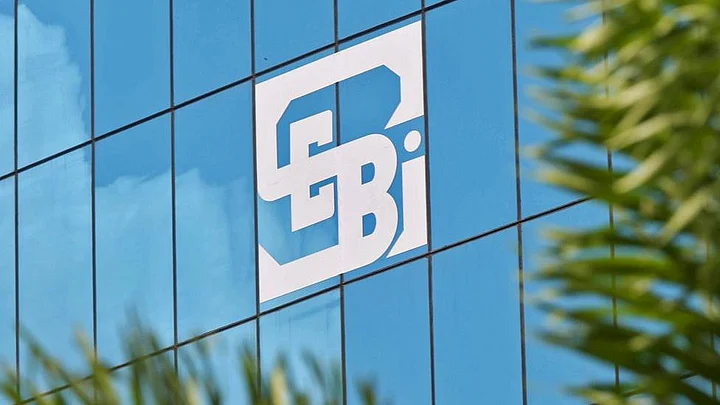Cracking the whip in the NSE co-location case, regulator Sebi on Tuesday, 30 April, directed the exchange to disgorge profits worth over Rs 687 crore, imposed a six-month ban on launching new derivative products, barred some present and past executives from the market and initiated strict action against stock brokers.
In an unusual move, the markets watchdog passed five separate orders, together running into 400 pages, related to the co-location case, wherein some entities allegedly got preferential access in high frequency trading.
The country's largest stock exchange has also been barred from accessing the securities market directly or indirectly for six months.
Ravi Narain and Chitra Ramkrishna - who had served as MD and CEO of the exchange - have been prohibited from "associating with a listed company or a market infrastructure institution or any other market intermediary for a period of five years", according to a 104-page order.
In another order, Narain and Ramakrishna have been directed not to hold any position in any stock exchange and clearing corporiation, among others, for three years.
They have also been directed to disgorge 25 percent of respective salaries drawn during a certain period.
The regulator has also directed action against at least five officials of the exchange.
Alleged lapses in high-frequency trading offered through NSE's co-location facility came under the scanner of the watchdog after a complaint was filed in 2015.
NSE co-location facility allows stock brokers to take on rent specific racks and co-locate their servers and systems within the exchange premises. The primary objective of co-location services of the NSE is to reduce latency for connectivity to the exchange's trading systems for Direct Market Access (DMA), Algo trading and Smart Order Routing (SOR).
The bourse "shall disgorge an amount of Rs 624.89 crore... along with interest calculated at the rate of 12 per cent per annum from April 1, 2014, onwards to the Investor Protection and Education Fund (IPEF) created by Sebi", an order said.
As per one order, Ravi Varanasi, head of Business Development Function at the exchange, has been barred for two years from holding any position with any stock exchange, clearing corporation, depository or any intermediary registered with the regulator or any of their related entities.
He "shall also not hold any position either directly or indirectly in or be associated, directly or indirectly, with a company listed in any of the stock exchanges recognised by Sebi for a period of three years," an order said.
NSE Assitant Vice President Suprabhat Lala has been slapped with a two-year ban from holding any position or be associated with any stock exchange, clearing corporation, depository, or any intermediary registered with Sebi.
A three-year ban has been imposed on Subramanian Anand, Group Operating Officer (GOO) and Advisor to MD of NSE from indulging in similar activities.
Nagendra Kumar SRVS (NSEHead of Membership Department) and Deviprasad Singh (Head of Colo Support - NSE) have been slapped with a two-year ban each from being associated with market intermediaries.
In the case, one Ajay Shah, Infotech Financial Services Pvt Ltd's two directors - Krishna Dagli and Sunita Thomas - have been barred from getting associated with any listed company and intermediary registered with Sebi for two years.
Infotech Financial Services has also been banned for two years from providing any services in this regard for two years.
An NSE spokesperson said it is in the process of examining Sebi order and will take appropriate steps as may be legally advised.
Among other entities, Sebi barred OPG Securities and its three directors for five years from accessing securities market and asked them to disgorge illegal gains of more than Rs 15 crore.
The watchdog has asked the NSE to carry out system audit at frequent intervals after thorough appraisal of the technological changes introduced from time to time.
Further, the exchange has to reconstitute its Standing Committee on Technology at regular intervals to take stock of technological issues and frame a clear policy on administering whistle-blower complaints, as per an order.
Sebi observed that the exchange did not exercise requisite due diligence with respect to Tick-by-Tick (TBT) data architecture.
"I find that it is established beyond doubt that NSE has not exercised the requisite due diligence while putting in place the TBT architecture. The same created a trading environment in which the information dissemination was asymmetric, which cannot be considered fair and equitable," Sebi Whole Time Member G Mahalingam said in an order.
According to him, the NSE being a market infrastructure institution (MII) cannot be treated at par with other market intermediaries or participants as it derives its power to act as a stock exchange from the recognition granted to it.
Issuance of any direction which would have a bearing on its status as a recognised stock exchange falls outside the scope of these proceedings, he added.
"... I am of the view that an order for disgorgement of a portion of the profits derived from the TBT data dissemination activity during the relevant period, for being transferred to the IPEF... would be an appropriate direction, commensurate with the violations," Mahalingam said.
For commutation of the disgorgement amount, the regulator took into account that TBT data dissemination commenced from June 2010 onwards and continued till March 2014.
(At The Quint, we question everything. Play an active role in shaping our journalism by becoming a member today.)
